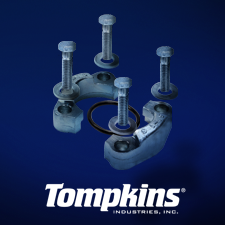What is Value Add and Why is it so Important to Industrial Distributors in the Future?
Part 1
By Dr. W.R. McCleave, Jr. PE
 For at least the past 25 years, the term “value add” has been used frequently in dialog between distributors and manufacturers and has been discussed as a sales tactic to defend or increase margins with customers. The phrase is used so frequently that an outside observer would think the term has a common meaning and that there is universal understanding of the concept. It might be prudent for channel members to pause and reflect on what value add really means and see how it might impact industrial supply in the future.
For at least the past 25 years, the term “value add” has been used frequently in dialog between distributors and manufacturers and has been discussed as a sales tactic to defend or increase margins with customers. The phrase is used so frequently that an outside observer would think the term has a common meaning and that there is universal understanding of the concept. It might be prudent for channel members to pause and reflect on what value add really means and see how it might impact industrial supply in the future.
What is value add?
At its supply chain core, value add is the value that channel partners add to a product as it moves through the supply channel from producer to end user. Many manufacturers’ representatives, distributors and logistics providers may be convinced that they add extensive value to a producer’s products because of the costs of the activities they undertake as channel intermediaries. The end user (customer) may not agree.
Channel value can have many facets but usually supply chain intermediaries, such as reps and distributors, provide time and place utility for business customers. Their value lies in getting the right products in the right place at the right time and, of course, at the right total cost. The right cost is measured in different ways by customers, often and naively by price alone and occasionally by total life cycle costs. Few customers ever care what the costs of the many channel activities are but instead concentrate on the impact of those activities on their businesses.
Many attempts – from traditional sales activities all the way through significant supply contract negotiations – have been made to document the value that supply chain partners add to their customers’ businesses. Although some value-add contributions are difficult to quantify, some suppliers have been successful in quantifying the economic benefit they provide to their customers. Many integrated supply agreements are based on quantifiable savings.
In general, commercial and industrial customers value suppliers that have at least some, if not most, of the following attributes:
• Quality products and services
• Lowest total costs
• Convenience
• Flexibility
• Problem solving
• Security
These attributes are linked to activities undertaken mostly on the customer’s and/or the producer’s behalf. Any one of these attributes performed superlatively can differentiate suppliers from competitors at a given point in time but the advantage may be eroded as competitors eventually offer similar activities.
Traditional distributor activities have included buying in bulk, stocking, selling, picking, packing and shipping, among others. Customers continue to expect and value these activities (distributor services) and will pay for them as long as the marketplace does not provide lower cost or faster alternatives.
These activities are virtually attached services which may not be separable from the product itself.
Commodity products and these associated services have become attractive to larger distribution players and retailers that use scale to reduce inbound product prices (cost of goods) and technological and logistics efficiencies to cut the costs of attached services. Commercial and industrial customers may be ripe targets for these efficient supply models.
For distributors that cannot match the attribute capacity of giant competitors to provide commodities and their attached services, there are several options available to stay in the game. These may include (among others):
• Forget about larger competitors and those customers that might be attracted to them
• Fight back with matching capabilities through alliances, cooperative services and mergers
• Focus on more leading and “bleeding” edge products that require extensive human support
• Out-flank the giants by offering extended value-added activities where scale may not provide an advantage
The second part of this article will explore some of these extended activities and examine the advantages of providing them. There are challenges with each of these approaches but to totally ignore what is rapidly changing in the industrial marketplace is a recipe to fizzle! Stay tuned for more next year.
Dr. W.R. McCleave, PE, is a nationally recognized speaker, trainer and president of W. R. McCleave & Associates, a consulting firm specializing in relationship management for industrial distributors, manufacturers and their customers. Contact him at bmccleave@aol.com or (704) 232-6858.












